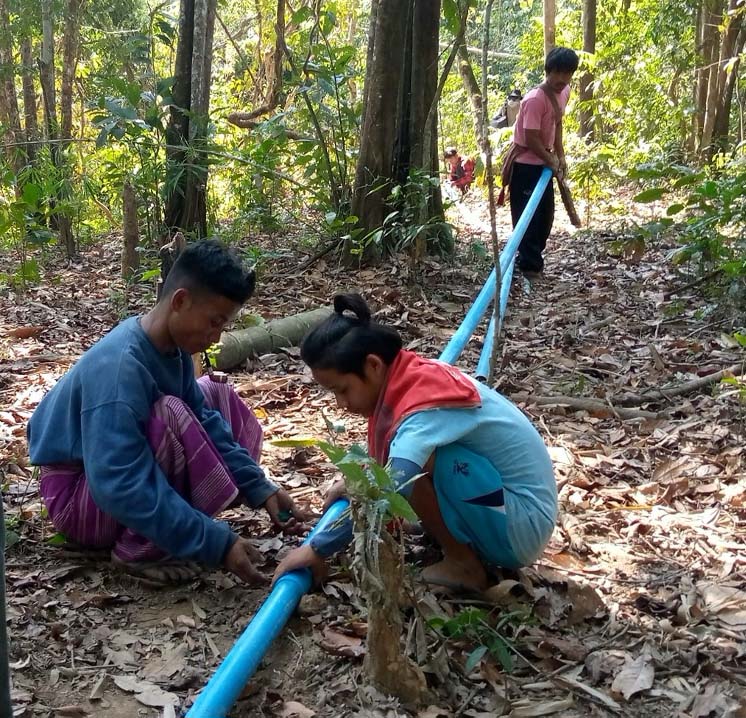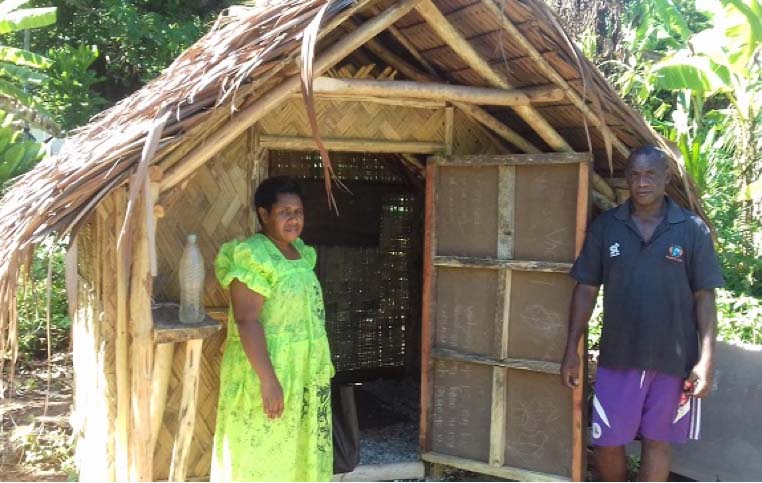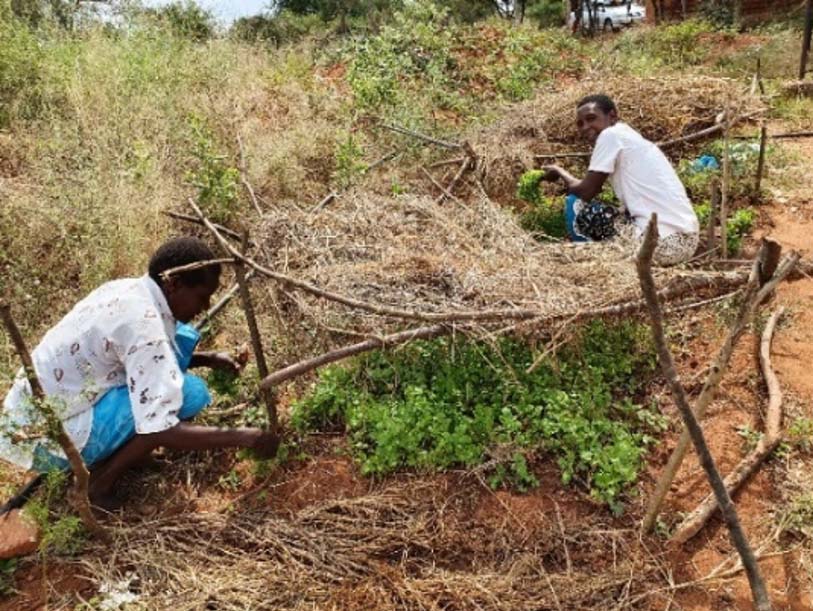During 2020, many locations across Vanuatu, Kenya and Myanmar enjoyed new or repaired water supply systems, thanks to ABM’s supporters and partners, the Australian Aid Program and local initiative.
In 2020
7,644 people gained increased access to safe water
13,964 people gained access to basic toilets and handwashing facilities
26 new water supply systems were built or upgraded
65,373 people gained increased knowledge of hygiene practices, including how frequent handwashing reduces the chances of catching COVID-19
The number of water supply systems (dams, tanks and wells) built by ABM partners actually fell from 47 last year to 26 in 2020, partly due to COVID-19 restrictions hampering construction. However, new beneficiary numbers for these water supply systems remained similar to last year, with just over 7,000 new people benefiting this year.
The numbers of people accessing new sanitation facilities (toilets, handwashing units) and the numbers attending hygiene awareness-raising sessions rose abruptly in 2020, to 13,964 and 65,373 respectively. This abrupt rise was due to partners adapting their projects to meet the new needs generated by the COVID-19 pandemic.
Below you can read specific results for each of the three countries.
Myanmar
Eight new water systems were installed by ABM’s Myanmar partner (CPM). This was a drop of about 50% from the previous two years and can be attributed to the COVID-19 travel and meeting restrictions.
CPM Myanmar also conducted hygiene and COVID-19 awareness sessions across all six dioceses.

Myanmar villagers laying water pipes through a remote forested area. © CPM.
Vanuatu
In Vanuatu, ABM’s partner, ACOM-V, slowed some aspects of its WASH work in 2020, building only 13 new water systems and 13 model toilets. Replication of these facilities by locals using their own funds also slowed, with locals building 19 water points and 42 toilets of their own. The slowing down occurred because both ACOM-V and local ni-Vanuatu were affected in 2020 by the double disaster of COVID-19 restrictions and Cyclone Harold.
On the positive side, ACOM-V was able to quickly adapt its programming to respond to Cyclone Harold and COVID-19, including expanding its hygiene awareness-raising sessions to reach 586 more people.

ACOM-V’s Rucinta Vora, with WASH volunteer Rainol Qenegle who helped build this toilet next to the Anglican Church in Mosina, Torba Province, Vanuatu. © ABM.
Kenya
In Kenya, ABM’s partner, ADSE, constructed one sand dam, one sump well and one shallow well. ADSE also installed one PVC water tank in a primary school. These facilities served an estimated 3,488 adults and children across the two project locations of Kiangini and Kyua. In addition, some community groups and individual farmers used their own funds to replicate ideas like sump wells and farm ponds.
People from ABM-supported communities in Kenya were happy with what was achieved:
Caroline from Kiangini commented: “The Mutini sump well and irrigation project in Kiangini is enabling us to get water for irrigation close to our farms through the piping system, compared to before whereby we used to use donkeys to fetch water for irrigation.”
A member of Kyumbuke Community-based Organisation said: “Since Kalulini primary school was supported with the water tank last year, children do not pass through my home which is next to the school to request for drinking water on their way home. Now they drink clean water from the school tank.”

Members of the Kiangini Farm Pond PWD Self-Help Group tend to their group coriander plot. © ADSE.
ABM wishes to acknowledge and thank its three partners involved in WASH projects during 2020: the Anglican Church of Melanesia in Vanuatu (ACOM-V); the Church in Province of Myanmar (CPM); and Anglican Development Services, Eastern (ADSE) in Kenya.
ABM also wishes to acknowledge the support of its generous donors, and the Australian Government through the Australian NGO Cooperation Program (ANCP).
But most of all ABM acknowledges the hard work done by local communities in Vanuatu, Myanmar and Kenya that has enabled their increased access to water, sanitation and hygiene.